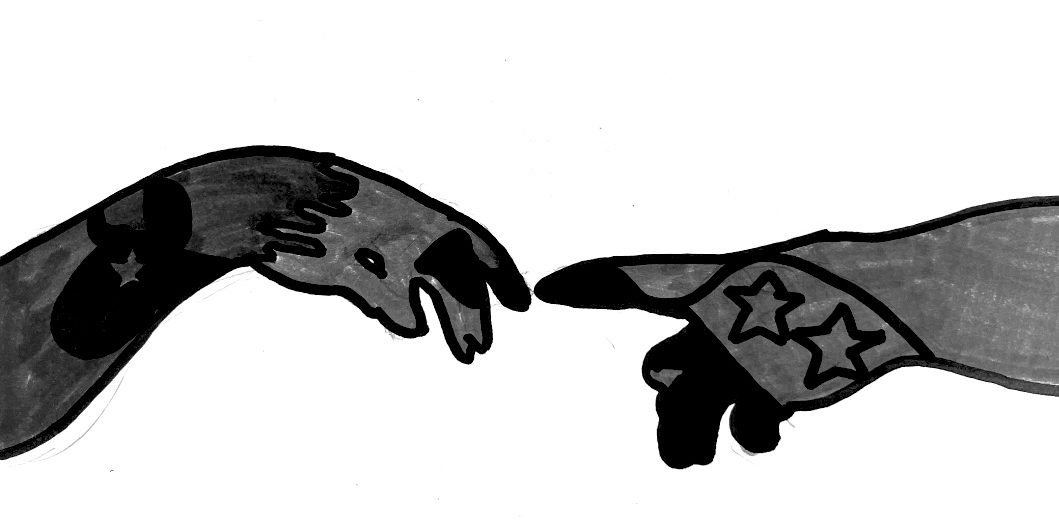Pro:
By Mia Ginsburg
One of the last people to be executed in the United States was killed by lethal injection on Aug. 3, 2023. Serial killer James P. Barnes was put to rest after sexually assaulting and killing two women, setting one of them on fire in her own bed afterwards. The odds that any one person is born are infinitesimally small, and when you look at the math, it is honestly a miracle that any of us (let alone this version of us) are here. There are human beings who take that gift, spit on it, then use it to rape and kill others.
According to Pew Research, 64 percent of Americans support the death penalty. There is a reason for that. Capital punishment is an ugly and imperfect practice that is in desperate need of reform and paring down, but that does not mean that it has no place in our justice system. The death penalty should be used incredibly sparingly, and with great consideration, but there are still child sex offenders and serial killers who deserve the very worst.
It is a soothing idea that these kinds of people would sit and rot in jail, then burn in hell after they die. But sadly, there is no evidence that such a place exists, not a biblical Hell nor a Greek Tartarus.
My argument for the death penalty is simple: If you abuse children or commit unspeakable crimes such as mass or highly sadistic murder, you deserve to die. The idea that living in prison is a worse punishment than death is a farce, as the people on death row are almost always in protective custody, a cushiony bubble paid for by American taxpayer money to make sure they are isolated and safe from their fellow inmates.
The death penalty is not an easy topic to discuss, nor is it pretty. It is in desperate need of reform, as the false conviction rate is far too high. Wrongful convictions, especially of this magnitude, are dangerous and a threat to human rights. That said, the issues raised with the policy are not with the practice itself, but with the justice system. As broken as the system is as a whole, capital punishment still has a place in it. There is a reason there’s strong popular support for such an ugly practice, because sometimes the right thing isn’t pretty.

Anti:
By Matthew Marotto
Chair, bullet or needle, there’s a distinct evil coursing through the death penalty. Nowadays, it’s the potassium chloride that surges out from a syringe and into its victim’s bloodstream, ultimately seizing a human’s heart.
American society has reserved this institution as the final means of punishment. It’s for those who commit such atrocities that they’re no longer entitled to their own existence. This is an instinctively appealing proposition.
Underlying today’s world are the same primal tendencies that seek the most brutal revenge. In cases involving serial killings and other heinous crimes, few are immune to supporting seemingly deserved retributions.
But there’s a fault — many faults. The practical issues involve: a conservative estimate that over four percent of death-sentenced individuals were falsely convicted, a complete absence of evidence backing supposed deterrent effects, life imprisonment remains financially cheaper than execution, and minorities are disproportionately targeted, with Black Americans representing a four times greater share of death row than they do in the U.S. general population.
It’s bad business, both ethically and fiscally, to operate the death penalty, but it’s worthwhile to remember that this isn’t an institution of logic nor morality.
When a society promises justice by killing those who killed others, there’s a deeply tragic irony. What is to separate the good and the just from the evil and the murderous if both resort to essentially the same actions?
In the aftermath of the Parkland shooting, the perpetrator Nikolas Cruz avoided the death penalty due to a Florida jury’s sentencing recommendation. While widely detested, the decision drew a clear line between those who commit atrocities and a justice system that stands above its worst subjects.
Even if bitter practical realities and probable constitutional violations were neglected, retributivists and their “eye for an eye” proclamations still fail to address modern morality. As evidenced by the continuation of the death penalty, crude and cruel human instincts still affect today’s humankind. However, it should be a civilized society’s mission to suppress such natural maladaptations, especially when it comes to the barbaric and illogical punishment that is the death penalty.
—
For more death penalty-related content, follow this link.








